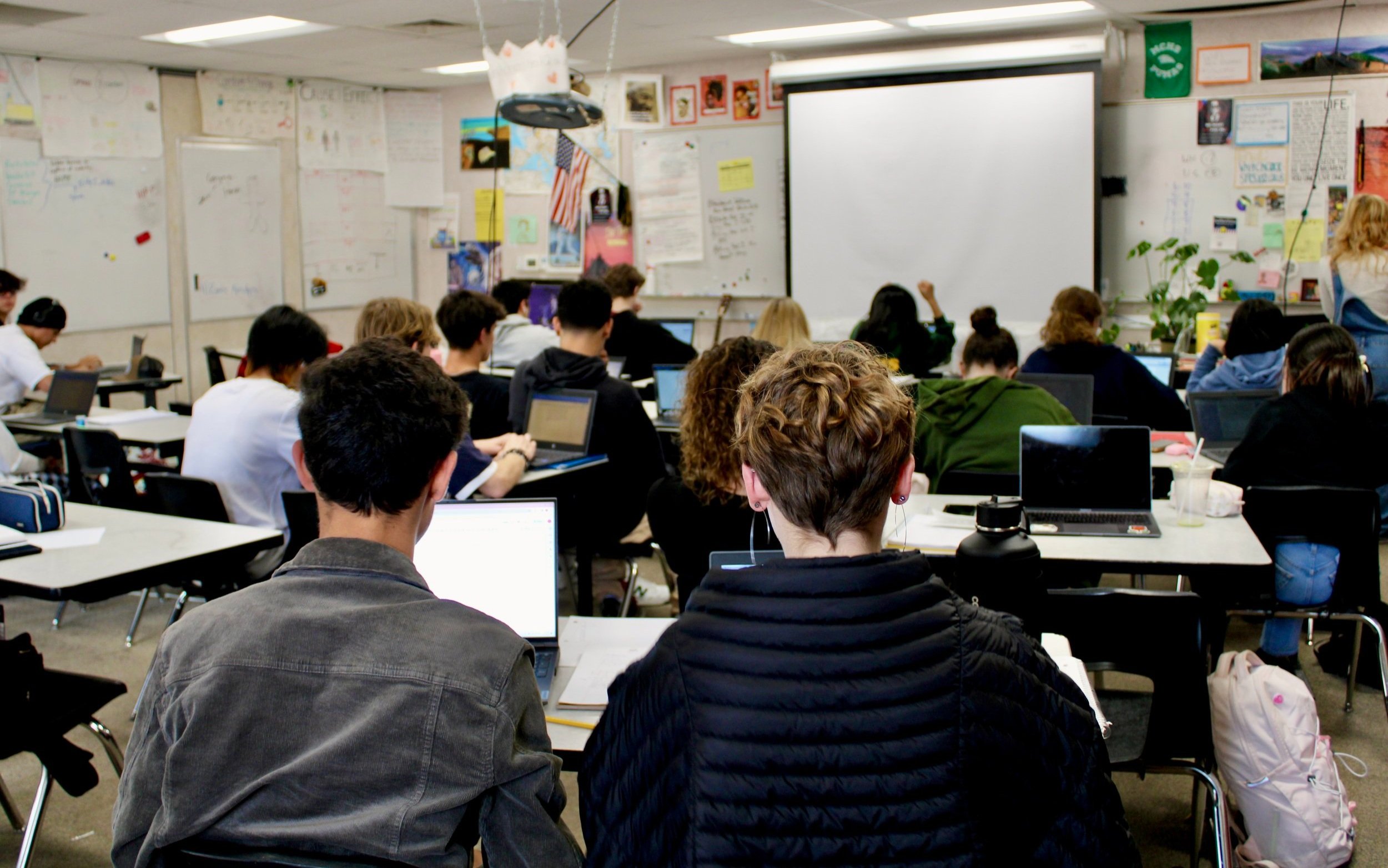Overcrowding and class overflow in classes
Large history class (Photo: Sophia Hughes, The Puma Prensa)
By Heyman Luong, opinion editor, and, Sloane Crocker, sports editor
The school year kicks off, and students and teachers have gotten back into their daily routines and somewhat healthy sleep schedules. However, some students are still feeling the effects of a persistent issue—their’ class schedules. This year’s scheduling has raised 98numerous complaints, mainly regarding overfilled classes and students unable to make the switch between classes due to the previous issue, making it inevitable that some slip through the tight cracks in the system.
Creating student schedules is lengthy, beginning with student-counselor meetings in January and February to select courses for the upcoming school year. Then, Vice Principal Amy Weise ensures that each class is offered enough to match the number of students hoping to take the class. As counselor Lauren Davis put it, “if 165 students request Math 3, then she makes sure that we have five Math 3 classes.” Ironically, Math 3 was one of the classes hit hardest by overcrowding this year. Honors Math 3 teacher Tina Angel said that the number of requests for this class this year was three times more than the number of students in Honors Math 3 last year, so she “was expecting to have three periods” and was shocked to discover that she would have only two, with 79 students between them—that’s nearly 40 students per class.
This overcrowding is not an issue to be taken lightly and has ramifications for both students and teachers alike. Angel stated that as an educator, she wants to “connect with everyone,” especially those who may need special attention, yet because of the class sizes, she “physically can’t.” Additionally, overcrowding leads to the obvious issue: lack of space. Angel stated her dissatisfaction with the lack of enough desks in her room, as she doesn't want to “talk to the back of students’ heads.” And for the students, Angel fears that they feel “lost,” unable to connect and feel “seen and heard.” Sophomore Isa Dajalos confirms this statement, saying, “It’s easy to get overlooked when you’re struggling.”
Due to overbooked classes, many students haven’t been able to get requested classes, causing frustration. Especially for seniors, being unable to take classes is disheartening—they don’t have second chances. And when the cause is possibly preventable with different scheduling, it feels especially infuriating. Senior Kiera Schroeder was not able to take AP physics in her last year of high school and said that she finds it “particularly harmful when the class can be beneficial for you, yet you’re unable to take it solely because too many other students are in it.” And it’s not just a problem that affects a few students. Schroeder stated that she knew “at least three other people who [wanted] the class but were waitlisted.” She expressed how there was often only one period of highly popular classes, giving AP physics this year and AP biology last year as examples, and wanted “more teachers or class opportunities for the subject,” or seniors to have priority for classes. “Juniors and sophomores…have more years to apply, and if seniors don’t have priority, there is a [lower] chance they’re…able to get it their last year.”
So, scheduling for the 2023-24 school year has given rise to class overcrowding and students dissatisfied with their classes—how can this be prevented in the years to come? Angel says that she would love the administration to “have a better handle on the number of sections,” while Counselor Jennifer Green wishes for “unlimited resources to attract teachers, have all staffing gaps filled, and expand capacity with more classrooms.” She says that a “deliberate evaluation of.. the issue by our school community” would be necessary to make a change. And though the administration does its best and “gets through it every single year,” according to Counselor Ellisa Beamish, it is clear that the class scheduling system isn’t perfect and can be improved upon in the years to come. Despite proposed solutions, overscheduling has been a persistent issue for a long time—especially with long-term teacher shortage issues. So while intricate problems only get more complex, only time will tell whether the problems slowly get resolved, or if the problems just get kicked further down the road.

